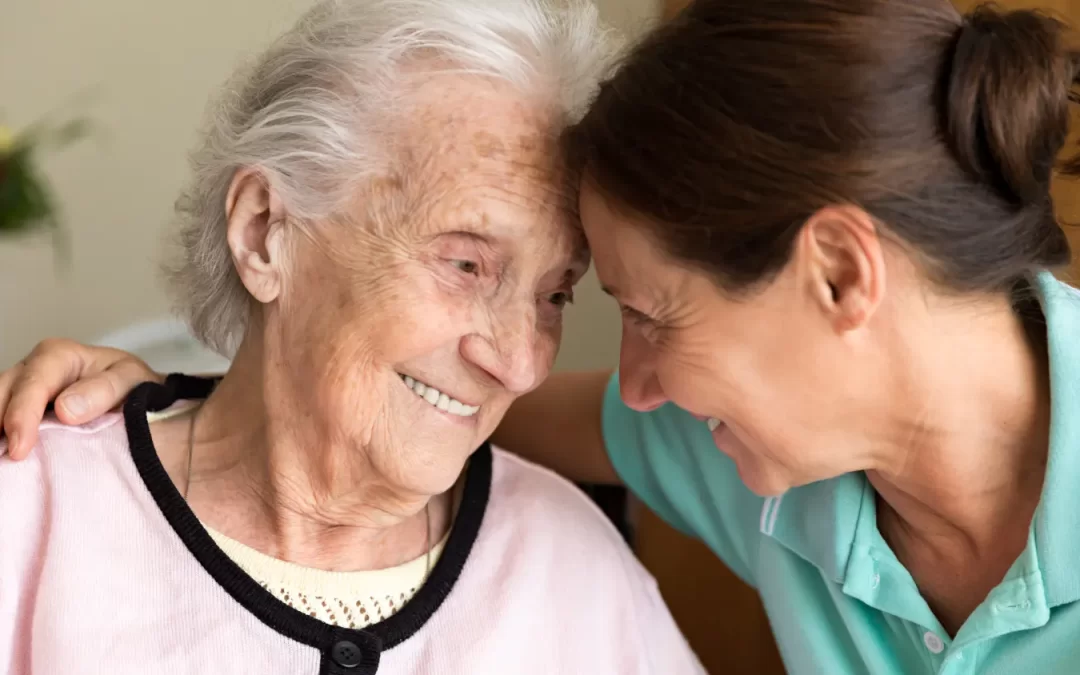Alzheimer’s disease and dementia are conditions that affect millions of individuals worldwide, often impacting not just those diagnosed but also their families and caregivers. Understanding the early signs and knowing how to support loved ones through these challenging conditions is crucial for ensuring they receive the best possible care and maintain their quality of life.
Early Signs of Alzheimer’s and Dementia
Recognizing the early signs of Alzheimer’s and dementia can lead to earlier diagnosis and treatment, which can slow the progression of symptoms. Here are some of the most common early indicators:
-Memory Loss: One of the most noticeable early signs is frequent memory loss, especially forgetting recently learned information. Loved ones may notice repeated questions or forgetting important dates and events.
–Difficulty Performing Familiar Tasks: Individuals may struggle with daily tasks that they once performed with ease, such as cooking, managing finances, or driving to a familiar location.
-Confusion with Time or Place: People with early dementia may lose track of dates, seasons, and the passage of time. They may also become disoriented, not knowing where they are or how they got there.
-Trouble Understanding Visual Images and Spatial Relationships: Vision problems can be an early sign, leading to difficulties with reading, judging distance, and determining color or contrast, which can affect driving.
-Problems with Speaking or Writing: Individuals may struggle to follow or join a conversation. They might stop in the middle of a sentence and have no idea how to continue, or they may repeat themselves.
-Misplacing Things and Losing the Ability to Retrace Steps: People may put things in unusual places and then be unable to find them. They may accuse others of stealing when they cannot locate an item.
-Poor Judgment or Decision-Making: Decline in judgment, such as making poor financial decisions or neglecting personal grooming, can be an early sign of dementia.
-Withdrawal from Work or Social Activities: A person may start to withdraw from hobbies, social activities, work projects, or sports due to the changes they are experiencing.
-Changes in Mood and Personality: Individuals may become confused, suspicious, depressed, fearful, or anxious. They may become easily upset in situations that are out of their comfort zone.
How to Support a Loved One with Alzheimer’s or Dementia
Supporting a loved one with Alzheimer’s or dementia requires patience, understanding, and a proactive approach. Here are some ways you can help:
-Educate Yourself: Understanding the disease helps in managing symptoms and planning for the future. Learn about the progression of the disease and what to expect as it advances.
-Create a Safe Environment: Ensure the home is safe by removing tripping hazards, installing handrails, and using locks where necessary. As the disease progresses, the need for safety measures will increase.
-Establish a Routine: Routines can help reduce confusion and anxiety for someone with dementia. Consistency in daily activities such as meals, bathing, and bedtime is important.
-Encourage Social Interaction: Help your loved one stay engaged in social activities. Whether it’s a simple conversation, a visit from a friend, or participating in a favorite hobby, staying socially active can help maintain cognitive function.
-Focus on Nutrition and Exercise: A balanced diet and regular physical activity are crucial for overall health. Encourage them to eat nutritious meals and engage in light exercises that are suitable for their condition.
-Be Patient and Supportive: It’s important to remain patient, even when repetitive questions or confusion occur. Offer gentle reminders and reassurance to help them feel secure.
-Use Simple Communication: Speak clearly and at a slower pace. Use short, simple sentences and allow them time to respond. Avoid correcting them or arguing, which can increase frustration.
-Plan for the Future: Early planning for legal, financial, and care needs is essential. Discuss these matters with your loved one while they are still able to make informed decisions.
-Seek Professional Help: Don’t hesitate to reach out for professional assistance. Home care services like those offered by AllCare Living Services can provide specialized care tailored to the needs of individuals with Alzheimer’s and dementia.
Caring for a loved one with Alzheimer’s or dementia can be challenging, but with the right knowledge and support, you can help them maintain a good quality of life. Early recognition of symptoms and proactive care planning are key to managing this journey effectively.
At AllCare Living Services, we offer compassionate and experienced care for individuals with Alzheimer’s and dementia. Our team is here to support you and your loved one every step of the way. Contact us today to learn more about our specialized care services and how we can assist your family during this time.

